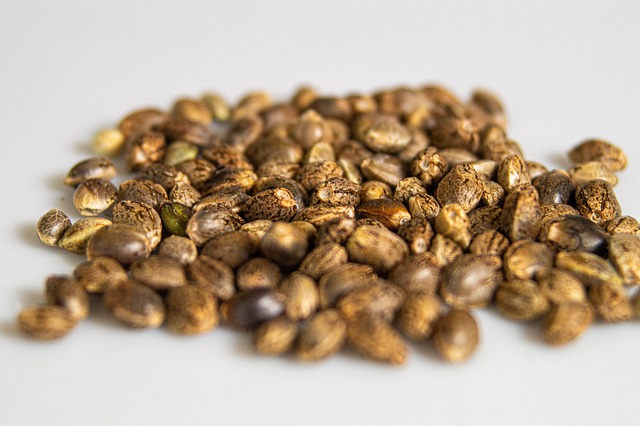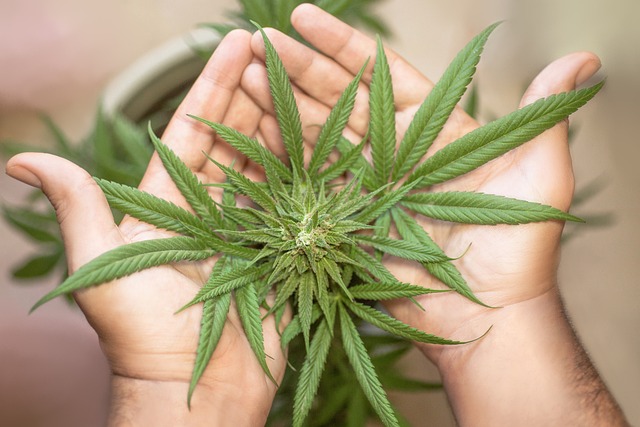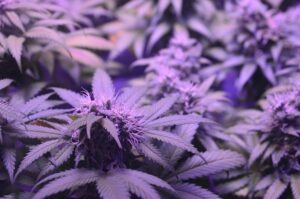
🌿 THCA flower, a source of the non-psychoactive cannabinoid THCA, is gaining attention for its potential role in pain management. It offers analgesic benefits similar to Delta-9 THC but without the psychoactive effects, making it ideal for those sensitive to cognitive impairment from cannabis. By interacting with the endocannabinoid system's CB1 and CB2 receptors, THCA is believed to effectively manage pain and inflammation, aiding conditions like arthritis and nerve damage. Its anti-inflammatory properties are attributed to its ability to inhibit enzymes linked to inflammation and pain signaling. Furthermore, THCA may also have neuroprotective effects, enhancing its value as a natural analgesic. The interest in THCA flower for pain relief is supported by anecdotal evidence and ongoing research that investigates its efficacy, suggesting it could become a significant component in holistic pain treatment strategies. As studies continue to uncover more about its benefits, THCA's potential applications are expected to grow within therapeutic practices.
Exploring the therapeutic properties of THCA flower as a natural remedy for pain relief, this article delves into its chemical composition, potential benefits, and clinical evidence supporting its use. We will navigate the intricacies of sourcing and ensuring quality THCA flower, discuss optimal dosing, and address the mechanisms by which it may alleviate discomfort. A critical examination of the side effects associated with THCA consumption is presented, alongside strategies to mitigate these effects. By comparing THCA flower to other cannabinoids and considering its legal status and accessibility, this piece offers a comprehensive look at integrating THCA into holistic pain management plans. Expert insights and medical professional perspectives further enrich the discussion on whether THCA flower serves as a viable alternative to traditional pain relief methods. With a focus on long-term use considerations and the role of terpenes, this article aims to provide a balanced view of the pros and cons of using THCA flower for pain relief, ensuring an informed decision for those interested in this natural approach.
- Understanding THCA Flower and Its Role in Pain Relief
- The Chemical Makeup of THCA and Its Potential Benefits
Understanding THCA Flower and Its Role in Pain Relief

Delta-9 tetrahydrocannabinol (THC) is well-known for its psychoactive properties, but before it undergoes decarboxylation, which activates its psychotropic effects, it exists in a non-psychoactive acid form known as tetrahydrocannabinolic acid (THCA). THCA flower, which contains high levels of THCA, has garnered attention for its potential therapeutic benefits, particularly in pain relief. Research suggests that THCA interacts with the body’s endocannabinoid system, influencing the CB1 and CB2 receptors that play a role in pain perception, inflammation, and overall bodily functions. This interaction can provide analgesic effects, making THCA flower a valuable option for individuals seeking natural relief from various types of pain without the psychoactive high associated with THC.
The analgesic properties of THCA flower are attributed to its anti-inflammatory and neuropathic pain relieving capabilities. Studies have indicated that THCA may help alleviate chronic pain, such as that from arthritis or nerve damage, by inhibiting the enzymes that promote inflammation and pain signaling. Additionally, it is believed to offer protection against neurotoxicity, which can also contribute to its pain-relieving effects. As a result, THCA flower for pain relief is an area of growing interest, with many exploring its potential as a natural remedy for managing different pain conditions. Users report that THCA flower helps reduce discomfort without the intoxicating effects of cannabis, making it a preferred choice for those who need pain management during the day or who must remain cognitively clear due to their activities or responsibilities.
The Chemical Makeup of THCA and Its Potential Benefits

Delta-9-tetrahydrocannabinolic acid (THCA) is a natural compound found in the cannabis plant and is the precursor to the well-known psychoactive substance THC upon heating. THCA exists abundantly in raw cannabis flowers and has garnered attention for its therapeutic potential, particularly in pain management. The chemical structure of THCA includes a phenolic ring that mimics endocannabinoids found within the human body, allowing it to interact with the endocannabinoid system (ECS). This interaction is believed to modulate pain signals, providing relief without the psychoactive effects associated with THC. Preclinical studies have suggested that THCA may offer analgesic properties, making it a promising candidate for those seeking natural alternatives for pain relief. Its anti-inflammatory and neuroprotective effects are also being explored, with potential applications in various conditions characterized by pain and inflammation. As research continues to evolve, the use of THCA flower for pain relief is becoming increasingly recognized as a viable option within holistic medicine practices.
In concluding our exploration, it’s clear that THCA flower holds promise for those seeking natural alternatives for pain relief. The unique chemical composition of this cannabinoid offers potential therapeutic benefits without the psychoactive effects associated with its counterpart, THC. While further research is warranted to fully understand its efficacy and optimal dosing, THCA flower’s role in pain management is an exciting development for those navigating chronic discomfort. Users considering THCA flower should do so under professional guidance, particularly given its impact on the endocannabinoid system. As such, this emerging botanical option merits attention within holistic health practices and could be a valuable addition to conventional pain relief regimens.







